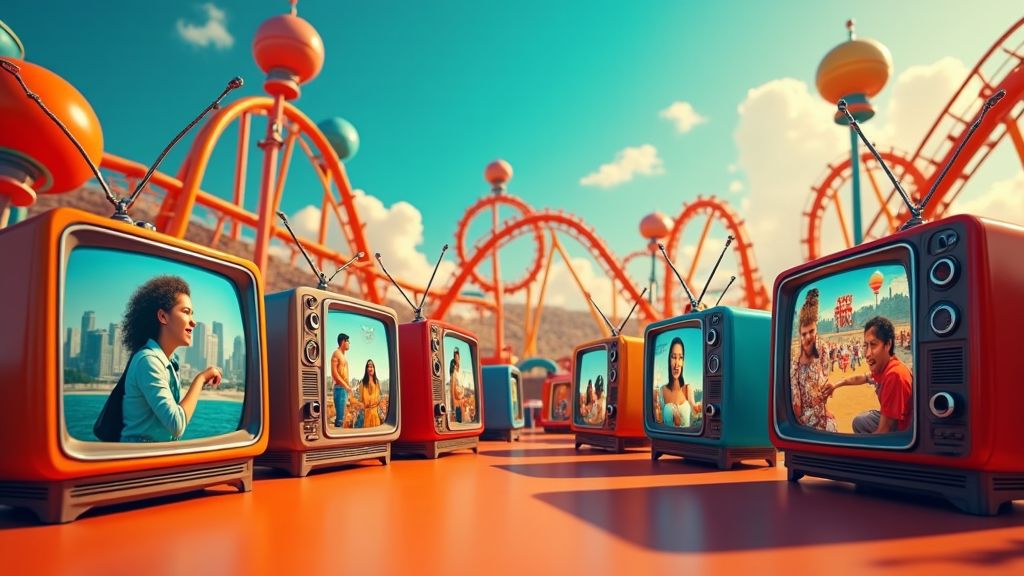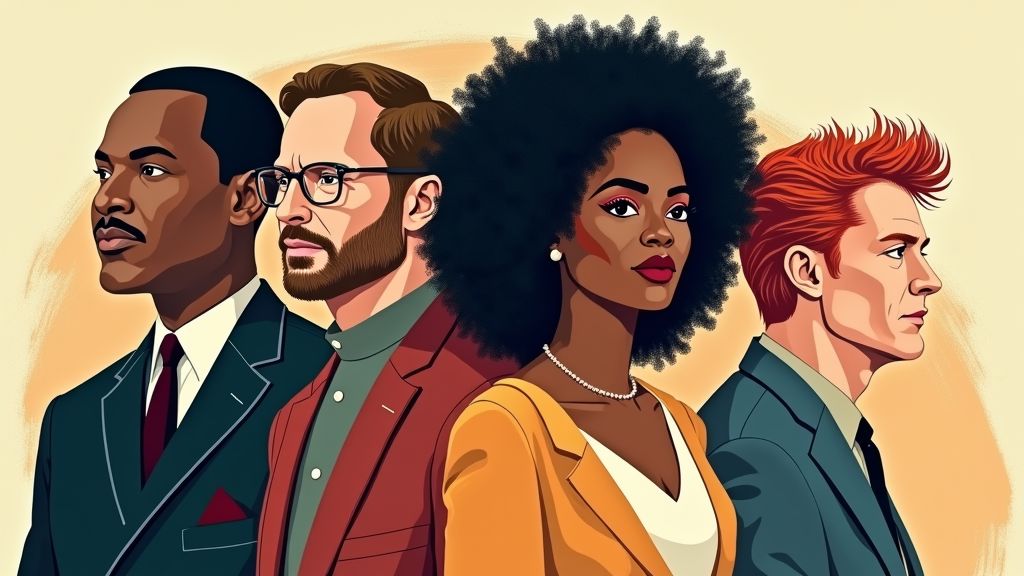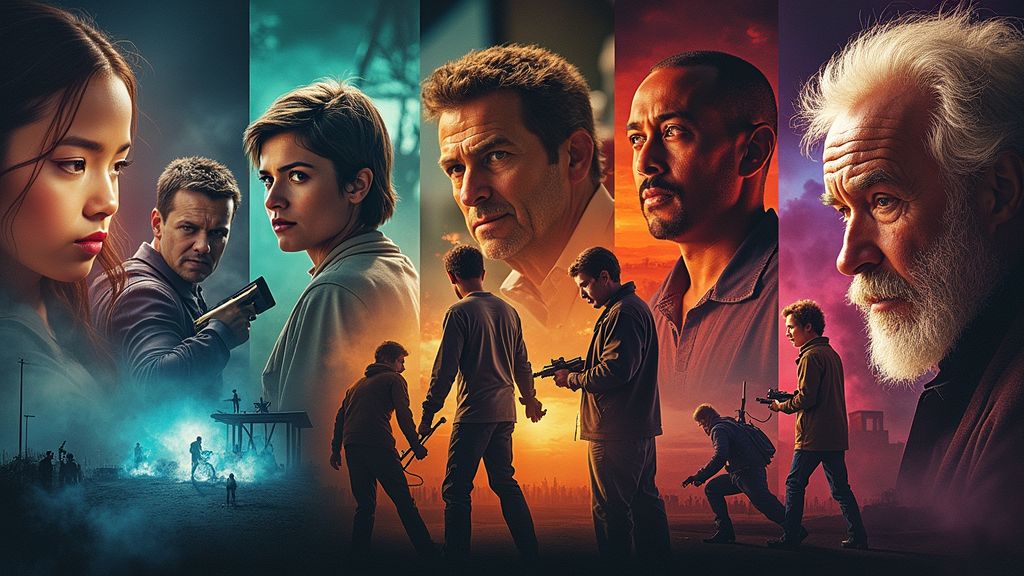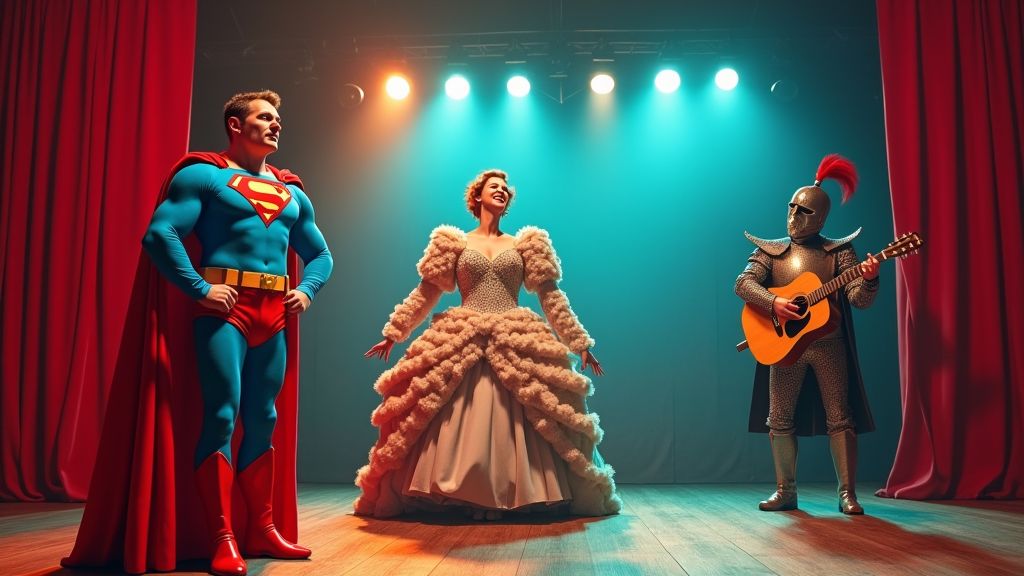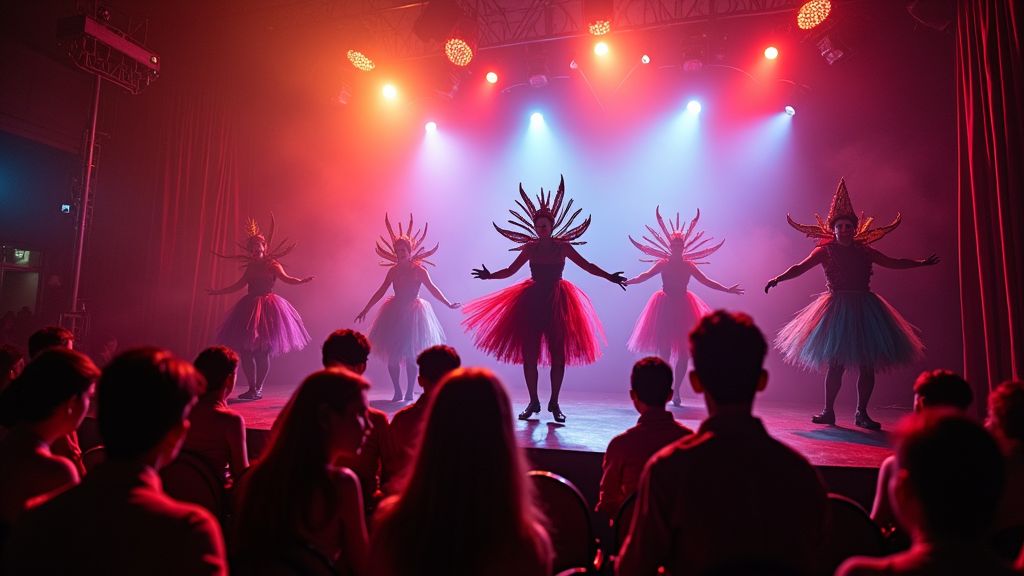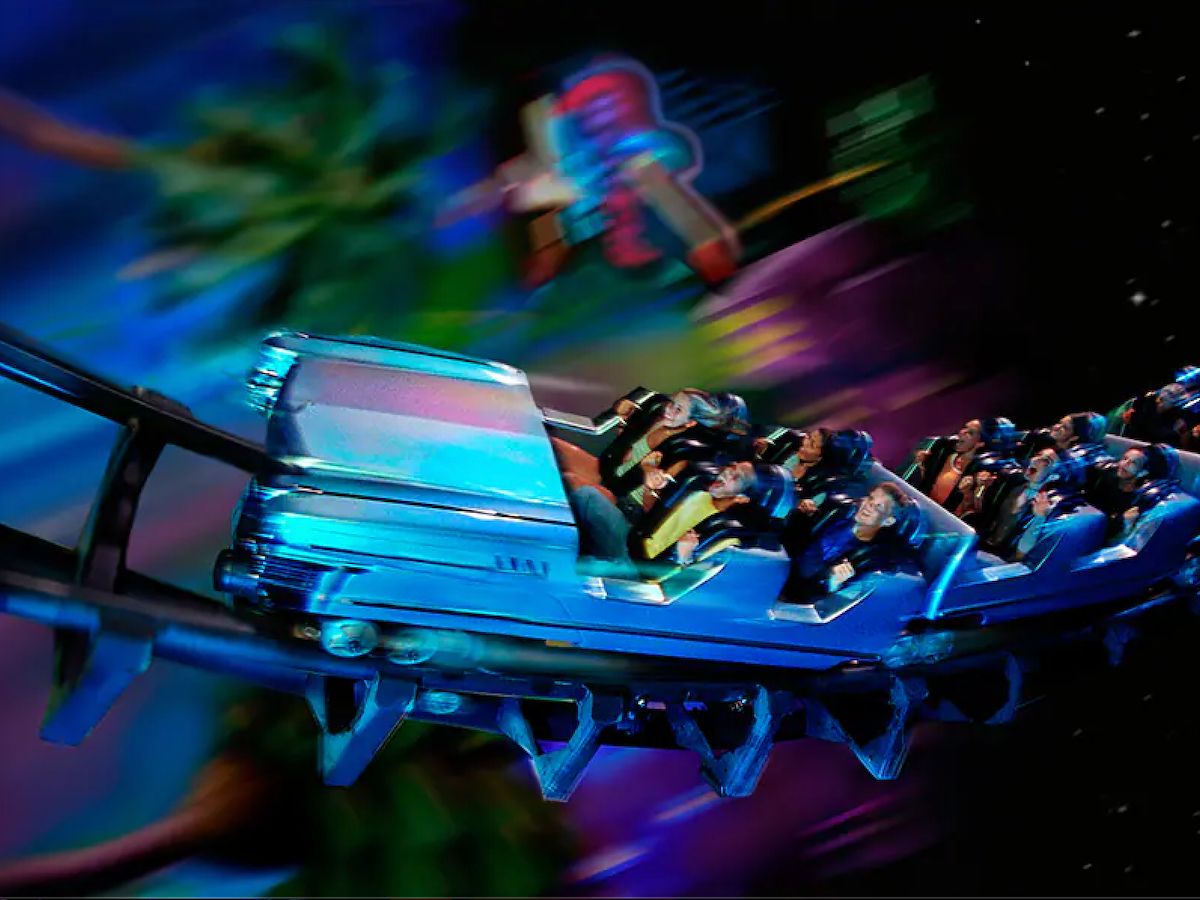Advertisement
Culture
The Influence of Literature on Modern Thought and Society
By
Logan Reed
11 min read
- # Literature
- # modern thought
- # social impact
Advertisement - Continue reading below
Ever wonder how flipping through the pages of a dusty old book could possibly matter to the relentless buzz of modern life? As it turns out, literature has an incredible knack for shaping our thoughts, society, and the very fabric of our lives. Books aren’t just words on paper; they are vessels of emotion, keys to understanding cultures, and catalysts for change. Each turn of the page can transport you to worlds unknown, spark revolutions, and even redefine the boundaries of technology and art. In an age of smartphones and instantaneous digital conversations, you might ask: “Do we really still need literature?” The surprising answer is a resounding yes. In the same way that ancient mythologies, epic poems, and philosophical treatises once guided civilizations, modern literature continues to guide us today—whether we’re aware of it or not.
So, let’s dive into the enchanting (and occasionally eccentric) world of books and see how they’ve been influential to modern thought and society. By exploring the transformative power of narratives, the historical shifts they have ignited, and the cultural and personal growth they inspire, we might just come to see that the humble pastime of reading is anything but obsolete. After all, every revolution, every breakthrough, and every new idea starts somewhere—often within the pages of a book.
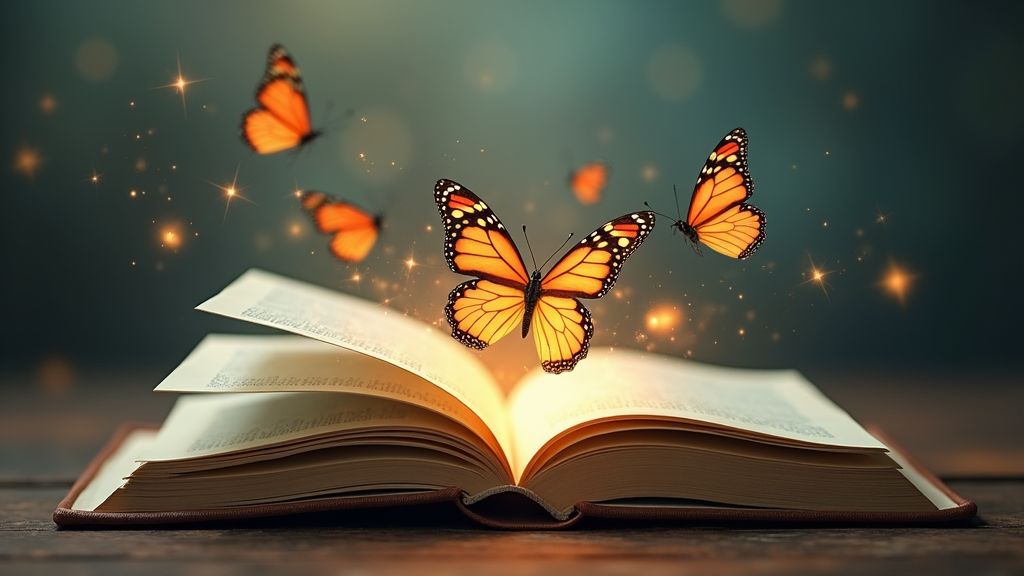
The Power of Perspective: Seeing Through Different Eyes
Have you ever finished a book and felt as though you’d lived through a thousand lives? That’s the magic of literature. It grants access to new perspectives, challenges preconceived notions, and encourages empathy in ways few other mediums can. You may start a story with a certain set of beliefs, only to close the book and discover your worldview has subtly shifted. This isn’t mere entertainment; it’s a reflection of how we absorb and process narratives that speak to human experiences, whether it’s about love, loss, struggle, or triumph.
Consider “To Kill a Mockingbird” by Harper Lee. Published in 1960, this novel didn’t just entertain; it compelled readers to reflect on racism, morality, and the disparity between justice and prejudice in American society. Through the innocent eyes of Scout Finch, we gain a perspective on deep-rooted issues that persist even today, compelling discussions in classrooms, courtrooms, and casual conversations. The novel has been a cornerstone in dialogues about racial inequality for decades—an impressive feat for any work of fiction. Its influence endures precisely because it offers a lens through which empathy becomes more than an abstract idea; it becomes an experience.
Reading diverse narratives broadens our worldview. Picking up a novel set in a culture different from your own can be as illuminating as traveling the globe, experiencing life from another vantage point without leaving your chair. In a world where social media algorithms often trap us in echo chambers, literature becomes one of the most powerful antidotes to intellectual isolation. By encouraging us to walk a mile in another character’s shoes, books facilitate understanding, tolerance, and acceptance. They tear down the walls of “us vs. them,” reminding us that, at the end of the day, our shared humanity is far more compelling than what divides us.
Whether it’s immersing yourself in Toni Morrison’s intricately woven narratives about African American life, or diving into the swirling magic realism of Gabriel García Márquez’s Latin American landscapes, literature has a unique ability to bring far-flung experiences right to our doorstep. And in an increasingly globalized society, having these cross-cultural experiences is not just enriching—it’s essential. We come to understand nuances of language, custom, and tradition that we might otherwise overlook or misunderstand, honing our ability to coexist peacefully in a diverse world.
Shifts in Ideologies: When Words Spark Revolutions
Did you know that literature has not just changed individual lives, but has also toppled regimes and shaped public policy? Throughout history, the printed word has served as both a weapon and a shield, inspiring mass movements and challenging oppressive structures. Take “1984” by George Orwell, for instance. Orwell’s prophetic take on intrusive governments, relentless propaganda, and the erosion of individual freedoms gave birth to phrases like “Big Brother is watching you,” widely used to criticize surveillance and loss of privacy. The novel, written in 1949, remains shockingly relevant to contemporary debates around personal data collection, government oversight, and free speech.
Similarly, Harriet Beecher Stowe’s “Uncle Tom’s Cabin” is often credited with fueling the abolitionist movement in the United States during the mid-19th century. Some say that when Abraham Lincoln met Stowe, he remarked, “So you’re the little lady who wrote the book that started this great war.” Whether or not this exact quote is apocryphal, the sentiment remains: a single novel helped shift public opinion so powerfully that it contributed to the intensification of regional tensions, ultimately culminating in the Civil War.
“Books have led to revolutions—every revolution starts as an idea, a narrative, a story compelling enough to inspire change.”
This narrative power emphasizes concepts of freedom, democracy, and social justice, equipping individuals with the vocabulary to recognize and respond to threats against these ideals. From Enlightenment philosophes like Voltaire and Rousseau—whose writings set the stage for the French Revolution—to modern activists quoting James Baldwin and Angela Davis, the written word persists as an instrument of societal transformation. The pen, as the saying goes, truly can be mightier than the sword.
What’s remarkable is how these ideological shifts are not confined to political landscapes alone. Cultural movements, too, owe a great deal to literature. The Beat Generation, led by figures like Jack Kerouac and Allen Ginsberg, challenged the norms of post-war American society, advocating for open sexuality, rejection of materialism, and a deeper exploration of spirituality. Their works reverberated through the counterculture movement of the 1960s, eventually influencing everything from music to fashion. Indeed, every time you see a major shift in cultural attitudes—from feminism to environmental awareness—you can often trace its roots back to a handful of passionate writers unafraid to question the status quo.
Nurturing Creativity: A Catalyst for Innovation
If you’ve ever read a book and thought, “What an imagination!” you’re not alone. Literature fuels creativity, leading to stunning innovations. J.K. Rowling didn’t just create Harry Potter; she conjured an entire fantasy realm so vivid that it sparked a worldwide phenomenon of fans, aspiring writers, and filmmakers. But it’s not just about commercial success or fandom. When we engage with imaginative worlds—be they medieval fantasies or futuristic galaxies—we stretch the boundaries of what we believe is possible. This mental flexibility can open the door to real-world innovations.
Look at it this way: many of the technological devices we use today were once the stuff of science fiction. Smartphones, Bluetooth earpieces, even voice-activated assistants like Siri or Alexa owe something to the visionary works of authors who dared to dream beyond the technologies of their time. By stimulating imagination, literature paves the way for inventiveness. Inventors, scientists, and engineers often cite novels—from Jules Verne’s “Twenty Thousand Leagues Under the Sea” to Isaac Asimov’s “Foundation” series—as early influences that sparked their curiosity and ambition.
Beyond technology, the creative power of literature seeps into every facet of culture. Think of the modern superhero landscape, which owes a great deal to comic books—yes, comics are literature too!—and the way they redefined our understanding of heroism, justice, and personal sacrifice. Many of today’s film directors and screenwriters grew up poring over these stories, internalizing themes that ultimately influenced the blockbusters and art-house films we see on the big screen. At its core, literature is an incubator for creativity. It provides a safe space for ideas to clash, coalesce, and evolve, ultimately surfacing as innovations that shape our world.
Language and Expression: Enriching Our Vocabulary
Imagine trying to explain love or fear without the right words. Literature provides language, phrases, and expressions that help us articulate complex emotions and intricate ideas. Take William Shakespeare, for example: phrases like “wild goose chase,” “break the ice,” and “love is blind” have all seeped into everyday language. If you’ve ever used the word “swagger” or exclaimed “good riddance,” you can thank the Bard for that too!
But Shakespeare is just the tip of the iceberg. All around the world, regional literature shapes language in subtle, lasting ways. From Russian authors like Fyodor Dostoevsky and Leo Tolstoy influencing the philosophical lexicon of existentialism, to Japanese haiku poets like Matsuo Bashō introducing minimalist beauty into literary expression, our global vocabulary expands each time a writer coins a phrase or frames an idea in a novel way. These linguistic innovations enrich communication and often provide just the right words to bring depth to dialogue—formal or informal, scholarly or everyday.
In turn, new linguistic expressions reflect changing social realities. As society evolves, so does its literature, and consequently, its language. Today’s authors grapple with issues of technology, globalization, and identity in a digital age, offering new terms and metaphors that capture the zeitgeist. Words like “cyberspace,” “meme,” or “metadata” were once limited to niche circles but have now become part of our common vernacular, thanks in part to literature and the cultural conversations it generates.
This linguistic enrichment is crucial for nuanced dialogue. Imagine discussing climate change without words like “carbon footprint” or “sustainability,” or talking about mental health without terms like “self-care” or “burnout.” Literature and the discourses it spawns push the boundaries of language, giving us the tools to describe our collective experiences more vividly and accurately. In this sense, authors are both observers and sculptors of language, mirroring the evolution of society while also driving it forward.
Education and Knowledge: Expanding the Mind
It’s not all about entertainment, though. Literature functions as a bottomless fount of knowledge, chronicling everything from historical events to psychological insights. Ancient epics like “The Iliad” and “The Odyssey” by Homer offered more than thrilling tales of gods and heroes; they provided glimpses into Greek society, warfare, and moral philosophies. Over time, works by Plato and Aristotle would shape Western philosophy, influencing the very foundation of education for centuries.
Fast-forward to modern classics, and the tradition continues. Charles Dickens’ “A Tale of Two Cities”, for example, isn’t just a gripping read; it offers invaluable lessons on rebellion, sacrifice, and the socio-political climate of the French Revolution. By contextualizing historical events within the fabric of human stories, Dickens made the complexities of revolution accessible and emotionally resonant. Literature of this sort imparts lessons that transcends time periods, reminding us that the struggles for justice, equality, and dignity are universal and ongoing.
Meanwhile, contemporary nonfiction works like Yuval Noah Harari’s “Sapiens” or Michelle Obama’s “Becoming” illuminate our modern era, from the origins of humanity to the intricacies of political life and personal identity. By delving into these narratives, readers gain insights that formal education might gloss over, or that the 24-hour news cycle fails to adequately explore. Think of every subject—history, sociology, psychology, science—and you’ll find a literary counterpart offering in-depth perspectives that can deepen your understanding. This symbiosis between literature and education ensures that learning is never static; it’s an ongoing process that evolves as new voices join the conversation.
In academic contexts, literature also serves as a gateway to critical thinking. When students analyze plot, character development, or thematic elements, they’re not just preparing for a test. They’re learning to interpret symbols, question assumptions, and build coherent arguments—skills that hold value far beyond the classroom. By nurturing these abilities, literature empowers future generations to look at the world with an inquisitive and discerning eye, equipping them with the intellectual tools they need to navigate an ever-changing global landscape.
Ready to Dive Deeper?
Feeling inspired? Go on, pick up a book you’ve always meant to read. Challenge yourself with a new genre, or engage with classics that have stood the test of time. You might explore the psychological depths of Fyodor Dostoevsky’s “Crime and Punishment,” or laugh along with the witty social critiques of Jane Austen in “Pride and Prejudice.” Each genre, each author, offers a unique entryway into understanding the human experience, unveiling layers of complexity you might not encounter elsewhere.
But don’t just read—interact. Form or join a book club to discuss your interpretations and explore how a single novel can elicit vastly different reactions. Share your thoughts on social media with hashtags like #LiteraryInfluence, or better yet, throw a book exchange party where everyone brings a beloved novel to swap. You might discover that the simple act of discussing plot twists and characters with friends can lead to profound insights about yourself and the society you inhabit. The communal aspect of reading has grown considerably in the digital age: thousands of online forums, virtual clubs, and social media groups are dedicated to dissecting everything from classic works to niche science fiction. Dive in, connect with fellow literature lovers, and expand your horizons.
Reading isn’t a passive act; it’s a transformative journey that can broaden empathy, spark revolutions, fuel creativity, enrich language, and expand the mind. In many ways, each of us is the sum of the stories we’ve encountered. Whether we realize it or not, those stories guide our values, shape our perspectives, and inform the way we interpret current events. So the next time you pick up a tattered paperback or download an e-book, remember: you’re not just entertaining yourself. You’re taking part in a tradition as old as humanity itself, engaging with the collective wisdom, dreams, and struggles of generations past and present.
And if you’re hesitant, thinking you don’t have the time or that reading feels too solitary, remember that the modern world offers endless ways to consume literature—audio books, e-readers, online excerpts, even bite-sized short stories on mobile apps. There’s a format for everyone, ensuring that no matter your schedule or your reading preferences, you can find a way to incorporate literature into your daily life. And once you do, you’ll likely discover that far from being an outdated pastime, reading is a rejuvenating practice that enriches your mental and emotional wellbeing.
So, here’s a gentle nudge: embark on that literary adventure you’ve been putting off. Write your own story, too, if inspiration strikes. After all, the world is always ready for fresh ideas and perspectives. Who knows—your words might be the spark that ignites the next great movement, or simply the kind voice someone else needs to hear.
The narrative of humanity is ever-evolving, and each of us has a role to play. Literature, whether a thousand years old or hot off the press, is our shared conversation across time. As you explore the worlds penned by others, don’t be surprised if you find yourself more engaged, more empathetic, and more imaginative than ever before. Literature doesn’t just mirror our world; it has the power to remake it.
Sources:
Advertisement - Continue reading below



